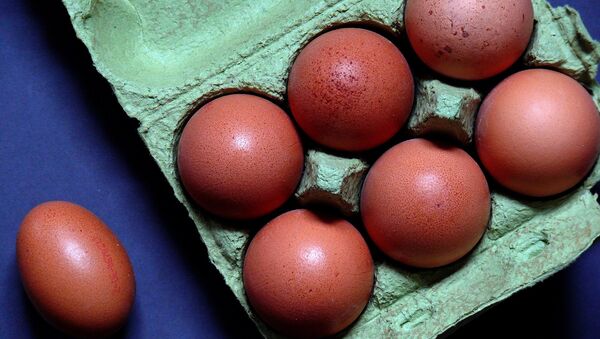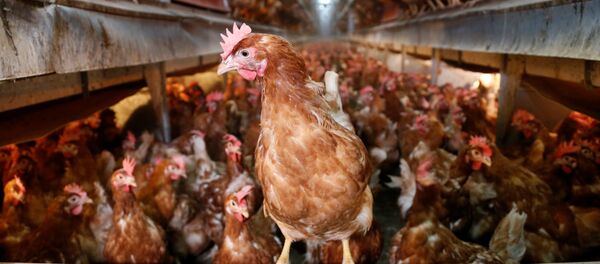BRUSSELS (Sputnik) — In late July, millions of eggs in Belgian, Dutch, German and other EU states' supermarkets turned out to be contaminated with fipronil, which is considered by the World Health Organization (WHO) to be a moderately hazardous substance. The substance is used to treat lice, fleas and ticks, and in large quantities, it can cause liver, kidney and thyroid gland damage.
"The recall of eggs was reported by Belgium, the Netherlands, Germany, Sweden, the United Kingdom, France, Luxembourg, Denmark, Slovakia and Romania, as well as Switzerland," the source said.
Meanwhile, French Agriculture Minister Stephane Travert said on Friday that about 48,000 eggs contaminated with the fipronil insecticide could have been sold in France by Leader Price supermarket chain.
"We had the first batch of 196,000 eggs from Begium that was put on the market between April 1 and May 2. These eggs were consumed with no impact on [public] health. And we have the second batch from the Netherlands… This corresponds to 48,000 eggs put up for sale by Leader Price between July 19 and July 28," Travert said, speaking about two batches of contaminated eggs that had been identified in France, as quoted by the BFMTV broadcaster.
However, the minister of agriculture said this was not a "sanitation scandal," but rather fraud, as "egg-product manufacturers had been deceived by their suppliers."
Belgian media reported on Tuesday that the country's Agriculture Minister Denis Ducarme accused Dutch authorities of failing to warn EU countries about egg contamination after it had been allegedly revealed by the country back in November 2016. The Netherlands, which is the leading producer of eggs in the European Union, has already denied the accusations.
Banned #pesticides have been found 🇳🇱Dutch and 🇧🇪Belgian eggs 🥚🍳 What's going on? https://t.co/SHb8OKnYIl #EggScandal pic.twitter.com/eyLWAaQHY1
— Greenpeace EU (@GreenpeaceEU) 11 августа 2017 г.
Last week, media reported that Aldi and Lidl supermarkets in Germany recalled millions of eggs from shelves over fears that they might have been contaminated with fipronil. The move followed the decision of the Netherlands’ product safety authority (NVWA), which had blocked the supplies of eggs from 180 farms due to the scandal.



